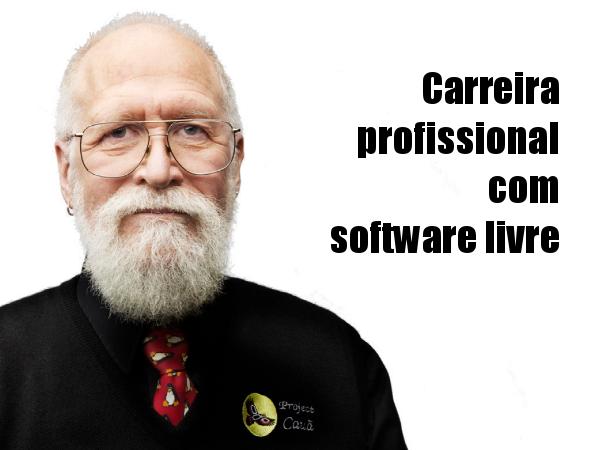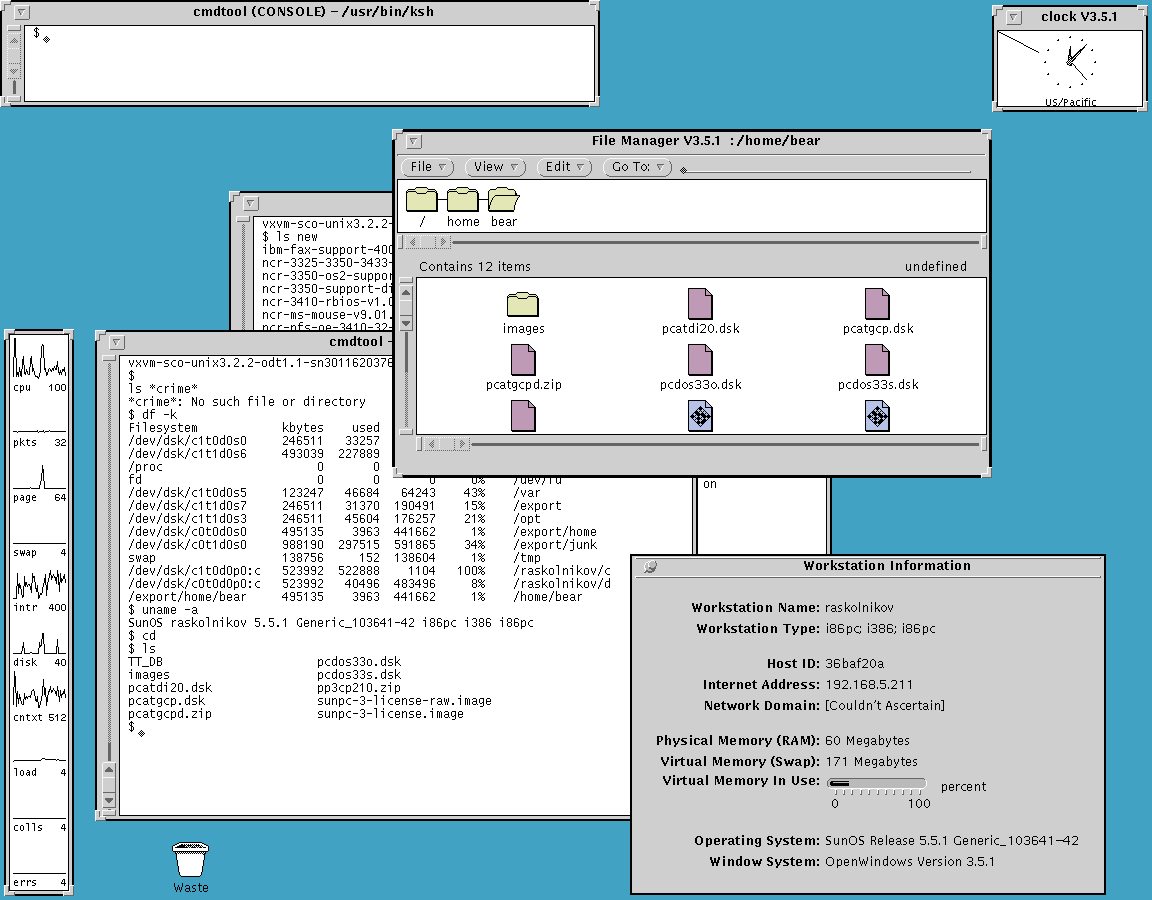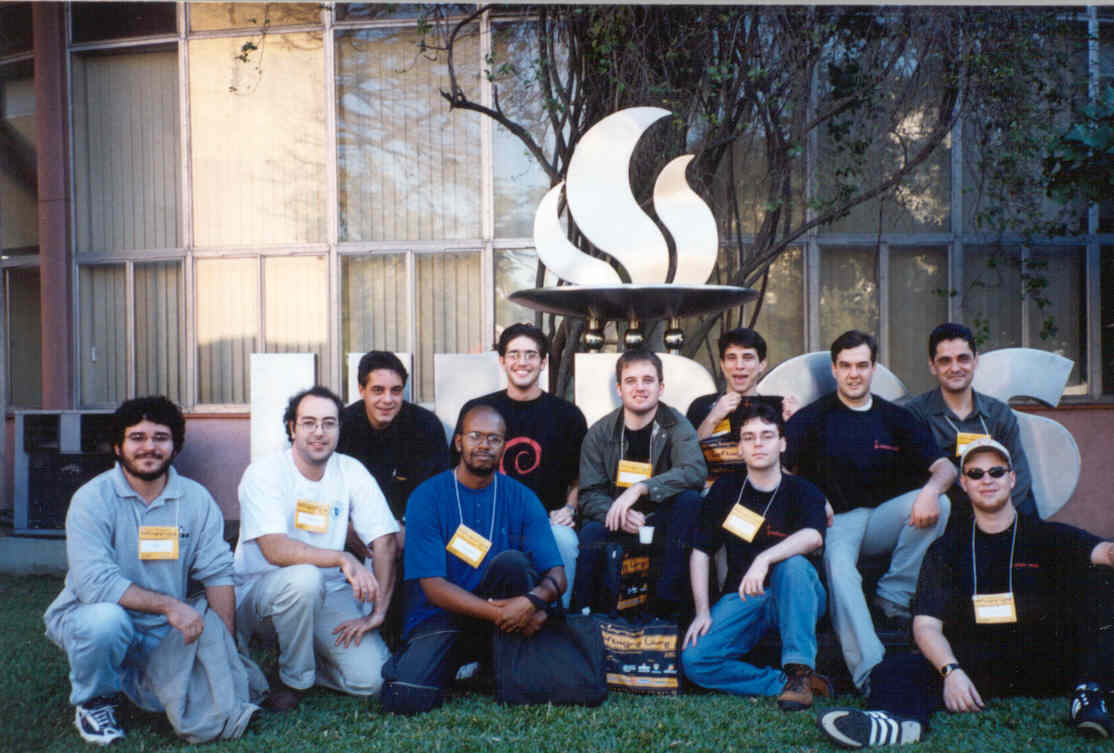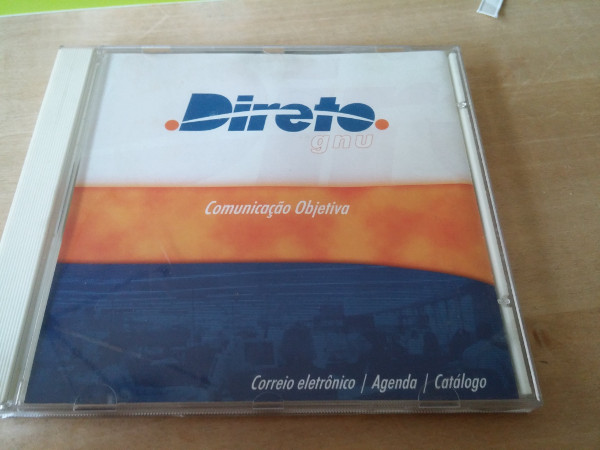
Software livre pode ser uma vantagem estratégica pra empresas, seja como forma de manter os custos baixos com uso da gratuidade dos programas ou seja como forma de inovação tecnológica pela forma simples e aberta de integrar os software. Mas e no lado pessoal? Como seguir uma carreira com software livre?
Contarei como foi no meu caso, mas... não recomendo seguir os mesmos passos. Eu tive sorte de uma questão de momento, que abriu uma enorme oportunidade pra mim. Atualmente essa mesma condição não existe mais. Então tente ver a questão de oportunidade aproveitada e só isso. Como o texto ficou muito longo, resolvi quebrar em partes pra abordar o início, e como se desenvolveu em seguida.
[AVISO: O RESTANTE DO TEXTO É LONGO E CONTÉM MUITA, MUITA, MAS MUITA NOSTALGIA]
Eu comecei com software livre na faculdade, UFSC, em 97. Eu tinha um computador que havia sido sucateado pela família, um 486, mas que era perfeito pros meus trabalhos na faculdade. Por um acaso muito grande, um raio caiu na rede elétrica e fritou a placa mãe. O que foi um grande azar na época acabou por se tornar um catalisador do restante da minha vida profissional nos 19 anos seguintes (e contando).
Sem muita opção eu acabei arrumando uma placa mãe de um 386 com 8MB de RAM com um amigo (valeu kibão!). Sem coprocessador numérico. A máquina era uma carroça e o tal do Windows 95 travava o tempo todo. Naquela época a vida era um inferno.
E nesse inferno por coincidência eu iniciei uma matéria optativa: Unix. Achei muito legal o sistema e descobri que tinha uma variação dele que rodava no meu cambaleante 386: era um RedHat. Acho que 4. Dois CDs de instalação da Cheap&Bytes.

De início não funcionava. Eu não conseguia instalar, mas o tal de Slackware, em disquetes funcionava. Levei 1 mês pra desvendar o problema que era o cdrom conectado na placa de som e que exigia um parâmetro extra no RedHat após o boot. Mas esse mês de insistência me ajudou a aprender o caminho unix de se fazer as coisas: leia as manpages!
Eu passava horas e horas nos laboratórios da faculdade lendo howtos e manpages na Internet. Documentação existia, mas não era fácil mandar um "como faz isso aqui" pra alguém responder. Existia a lista de discussão linux-br, mas perguntar algo que estava facilmente disponível em documentação era pedir pra ser chicoteado em praça pública. A caminhada da vergonha de Sersei em game of thrones é muito menos humilhante pra ter idéia de como era. Mas nesse ambiente hostil, onde só os mais fortes sobreviviam, eu consegui permanecer. E instalar o tal RedHat.
Era um prazer imensurável ter aquele ambiente OpenWin igual do Solaris da faculdade rodando em casa. E tinha spice (um programa de simulação de circuitos elétricos - coisa de quem faz engenharia elétrica)! Não exatamente aquele todo gráfico e bonitinho da faculdade, mas um todo em texto. O importante era que funcionava. E depois de ter aprendido a usar o editor vi, entre muitas lágrimas de revolta e me perguntando como alguém poderia ter criado aquilo, o spice era moleza.

Mas não tinha editor de textos WYSIWYG (What You See Is What You Get - o que você vê é o que você quer). Não tão simples quanto o Microsoft word. Essa limitação me levou rapidamente a aprender e usar latex. Textos muito mais elegantes num "vi" de distância de você. A bem da verdade eu usava emacs pra isso.
Não demorou muito e tudo aquilo virou minha paixão. Escolhi uma distro pra viver a minha vida com o mesmo amor com que se escolhe um time de futebol. Era torcida pura e simples. Flameware de formatos de pacotes, escrever textos e documentação sobre tudo o que fazia e participar de encontros. Foi assim que acabei indo pro primeiro FISL e conhecendo essas figuras que depois fizeram e até hoje fazem parte da minha vida profissional e até mesmo pessoal.

Nessa época meu sonho era ser sysadmin. Mas não sysadmin de Linux. Eu queria ser daqueles sysadmins que eram mitos. Um quase Denis Ritchie. Só não podia ser trabalho com Windows. No máximo uma configuração de servidor samba.
Então nesse pique quase que obssessivo por me torna um sysadmin, eu comecei a fazer consultorias em Unix. Alguns eram implementação de firewall, que eu já dominava com certa facilidade, outras eram pra instalar uma solução completa de servidor web, mail e dns. Fiz vários updates de servidores SCO pra Linux ou FreeBSD, que virou minha outra paixão nessa época (um TRUE Unix se comparado com Linux, que vinha do Minix - meu pensamento na época).
Toda essa introdução de como comecei com Linux é somente pra ilustrar de como eu não tinha a menor idéia do que estava fazendo. Não sei se outros da mesma geração como Eduardo Maçan, Nelson Murilo e Klaus Stedding-Jenssen sabiam. Sem modéstia nenhuma, esses caras eram monstros em Unix. Eu achava divertido, mas não entendia nada de Unix, programação, redes de computadores ou mesmo segurança. Só me achava o máximo por rodar um Unix em casa igual ao da faculdade. Lutar pela liberdade? A luta era sair do Windows. Essa era a luta pra mim. E ter um computador funcional num 386 de 8 MB de RAM sem coprocessador numérico. Essa era liberdade que eu queria.
Com o caminho de sysadmin escolhido, mergulhei em livros e estudei muito. Quase abandonei a faculdade de engenharia elétrica pra tentar seguir só como sysadmin. Nesse ponto o fato de morar em Florianópolis ajudou bastante pois era difícil encontrar emprego na área. Então acabei levando a faculdade até o fim. Do contrário teria tomado a decisão errada de parar os estudos.
Ao terminar a faculdade, e tentando viver como sysadmin, consegui alguns trabalhos em provedores locais que usavam Linux. Tive inclusive a oportunidade de trabalhar com máquinas FreeBSD. Mas a quantidade de trabalho não era tão grande assim, nem pagava tão bem. Então eu mantinha uma bolsa de trabalho na faculdade também.
Com os "freelas" aparecendo, consegui uma oportunidade pra cobrir um colega numa empresa de treinamentos. Esse foi meu início como instrutor de cursos de Linux, segurança e logo depois de cabeamento estruturado. Eu entendia de Linux, mas segurança e cabeamento... então tive de buscar apostilas e livros e estudar. Pra cabeamento estruturado até mesmo uma certificação Furukawa eu tive de fazer.

Mas esse estudo e empenho trouxeram frutos. Logo começaram a aparecer projetos maiores e mais interessantes, com empresas grandes. Eu me associei à empresa de treinamentos e conseguimos uma parceria pra representar a Conectiva, empresa brasileira de sistema GNU/Linux, no estado de Santa Catarina. Com a boa quantidade de trabalho, acabei abandonando a bolsa da faculdade pra me dedicar ao que eu gostava, que era ser um sysadmin profissional, instalando e configurando servidores, firewalls, IDSs, etc.
Mas logo eu comecei a sentir as limitações regionais. Muitos dos trabalhos exigiam não somente meu mundinho sysadmin, mas uma integração total de sistemas em rede, ou seja, conhecer melhor roteadores e switches. As opções de aprendizado eram complicadas pela falta de equipamento, que na época era muito cara. Com isso eu tomei a decisão de buscar emprego numa empresa maior, onde eu pudesse ter contato com esse tipo de equipamento e tecnologia.
E assim eu consegui um trabalho em São Paulo, na empresa onde trabalho até hoje. Essa parte em diante, deixo pra contar no próximo post :)
Abrimos uma pesquisa pra saber se as pessoas gostariam de um hangout falando sobre free software e open source, história, movimentos e polêmicas. O "sim" ganhou uma larga margem, então fizemos o último programa do canal "Unix Load On" sobre isso.
Não sei se foi abordado tudo o que deveria ser falado, mas tenho certeza que a discussão longa, interminável e improdutiva sobre o asssunto também continuará. Infelizmente.
Então aproveitem.